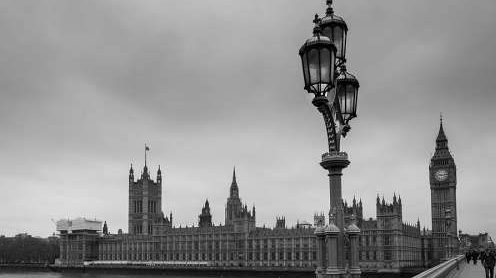The British Parliament has given final approval to permissive abortion rules in Northern Ireland, in effect since March, despite the Northern Ireland Assembly vote opposing the regulations.
“Today is an incredibly tragic day for Northern Ireland, for the unborn child and everyone who supports the right to life,” said Catherine Robinson, a spokesperson for the group Right to Life UK.
“Despite the efforts of tens of thousands of Northern Irish people, MLAs, Northern Irish MPs and pro-life campaigners, like Heidi Crowter, the U.K. Government’s extreme abortion legislation continues to be in place as a result of today’s vote,” Robinson said.
The 253 to 177 vote in the House of Commons took place June 17, BBC News reports. MPs previously voted to decriminalize abortion in July 2019, as an amendment to a bill to keep the region running in the absence of a functioning government when the Northern Ireland Assembly at Stormont was locked in a power-sharing dispute between the two leading parties. Normally the Northern Ireland legislature would have control over its own abortion laws.
Though the regulations had already entered force, Parliament was required to approve them. If MPs had rejected the regulations, the U.K. government would have been forced either to redraft the rules or to allow Parliament to vote on revoking the regulations.
The group Humanists UK praised the vote, saying “Northern Ireland has gone from having one of the worst abortion laws in Europe to one of the best.”
Robinson suggested that pro-life campaigning helped sway more MPs to take a pro-life position than the previous vote.
She said the vote was not the end, but rather the beginning of efforts to repeal the legislation through Northern Ireland’s Assembly. She said legislators must bring forward legislation to repeal the laws.
Since the imposition of the law March 31, more than 100 abortions took place in Northern Ireland in seven weeks. The legislation allows elective abortions up to 12 weeks of pregnancy; abortions up to 24 weeks in cases of risk to the mother’s physical or mental health; and abortions without time limit in cases of severe fetal impairment or fetal abnormality, including Down syndrome.
Previously, abortion was legally permitted in the region only if the mother’s life was at risk or if there was risk of long-term or permanent, serious damage to her mental or physical health.
Disability campaigner Heidi Crowter, who has Down syndrome, on Tuesday delivered to Prime Minister Boris Johnson an open letter signed by more than 18,000 people from Northern Ireland. The letter asked MPs to oppose the abortion legislation and to allow the Northern Ireland Assembly to decide abortion law.
In a non-binding vote of 46-40, Assembly members voted June 2 to reject “the imposition of abortion legislation that extends to all non-fatal disabilities, including Down’s syndrome.” The assembly rejected an amendment from Sinn Féin which narrowly focused on the specific legislative provision allowing abortion for all non-fatal disabilities, including Down syndrome. The amendment did not challenge other aspects of the law.
The bishops of Northern Ireland urged legislators to reject the Westminster abortion legislation, which they said was imposed “without the consent of the people of Northern Ireland.”
“While we regard this to be an unjust law, which was imposed without the consent of the people of Northern Ireland, we are morally obliged, wherever possible, to do all we can to save the lives of unborn children, which could be lost through abortion, and to protect mothers from the pressures they might experience at the time of an unplanned pregnancy,” they said in a June 1 letter to Northern Ireland legislators ahead of debate in the region’s assembly.
The largest party in the Northern Ireland Assembly, by one member, is the Democratic Unionist Party, which has emerged as a leading pro-life party in the region. However, the unionist party has had links to the Free Presbyterian Church of Ulster, an ecclesial community particularly hostile to the Catholic Church.
The next largest party is Sinn Féin, an Irish nationalist party that has historically enjoyed significant Catholic support. It supported permissive abortion laws in Northern Ireland imposed by the British Parliament. Its party members endorsed the repeal of the Republic of Ireland’s Eighth Amendment, which had protected unborn children’s right to life equally with the rights of mothers.
Members of the House of Lords, the second chamber of Parliament voted June 15 by 355 to 77 in favor of the abortion regulations.
In April, a House of Lords legislation scrutiny committee noted the abortion regulations were more expansive than were required by the law, while Northern Ireland’s attorney general argued that parts of the regulations were ultra vires—that is, beyond the power of the U.K. legislators to enact.

